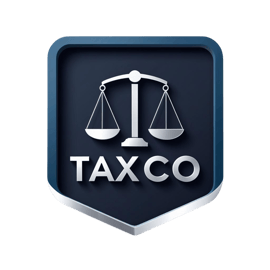Understanding Tax Law: Essential Insights for Pakistani Businesses and Individuals
Stay informed with Taxco.pk's latest insights on Pakistani tax law.
5/8/20242 min read


Understanding Tax Law: Essential Insights for Pakistani Businesses and Individuals
In Pakistan, navigating the complex world of tax law is not just a matter of compliance — it's a crucial aspect of financial planning and sustainability. Whether you’re a business owner, a salaried individual, or a freelancer, understanding the country’s tax framework is essential to avoid legal complications and optimize your financial outcomes.
1. Overview of the Tax System in Pakistan
Pakistan’s tax system is primarily governed by the Federal Board of Revenue (FBR), which oversees the collection of various direct and indirect taxes. The main types of taxes include:
Income Tax: Paid on the income of individuals, companies, and associations of persons.
Sales Tax: Imposed on the sale and purchase of goods and certain services.
Withholding Tax: Deducted at the source from payments like salaries, contracts, dividends, etc.
Customs Duties: Levied on the import and export of goods.
Federal Excise Duty: Applied to the production and sale of specific goods and services.
Provincial revenue authorities also levy taxes such as property tax, professional tax, and sales tax on services.
2. Key Tax Obligations for Individuals
a. Registration
Individuals earning above the taxable income threshold must register with the FBR and obtain a National Tax Number (NTN).
b. Filing Tax Returns
Filing an annual income tax return is mandatory for individuals with taxable income. Non-filers face higher withholding tax rates and other penalties.
c. Tax Credits and Rebates
Taxpayers can benefit from credits and rebates for things like donations to approved charities, investment in mutual funds, and payment of education fees.
3. Tax Compliance for Businesses
a. Corporate Income Tax
Companies must file tax returns annually, maintain proper accounting records, and ensure timely payment of taxes. The corporate tax rate may vary depending on the business type and size.
b. Sales Tax Registration
Businesses dealing in taxable goods and services must register for Sales Tax and file monthly returns. Failure to do so can result in heavy fines.
c. Withholding Agent Responsibilities
Businesses often act as withholding agents, responsible for deducting and submitting tax on behalf of employees, contractors, and suppliers.
4. Recent Developments and Digitalization
The FBR has increasingly adopted digital platforms like IRIS for tax filing and Tajir Dost for retailer registration. These systems aim to simplify compliance and reduce corruption.
Key recent initiatives include:
Track and Trace System for the tobacco, sugar, cement, and fertilizer sectors.
Point of Sale (POS) Integration for retailers.
5. Consequences of Non-Compliance
Tax evasion or non-compliance can lead to:
Fines and penalties
Freezing of bank accounts
Legal proceedings
Blacklisting of businesses
Hence, it’s crucial to stay informed and seek professional help when needed.
6. Tips for Taxpayers
Keep organized financial records
Use FBR’s online tools to check filer status and tax payments
Consult a tax advisor for complex matters
Always file returns before the deadline
Respond to FBR notices promptly
Conclusion
Understanding tax law in Pakistan empowers individuals and businesses to operate within legal boundaries while leveraging available benefits. With tax reforms underway and increasing digitalization, now is the best time to become a proactive and informed taxpayer.
